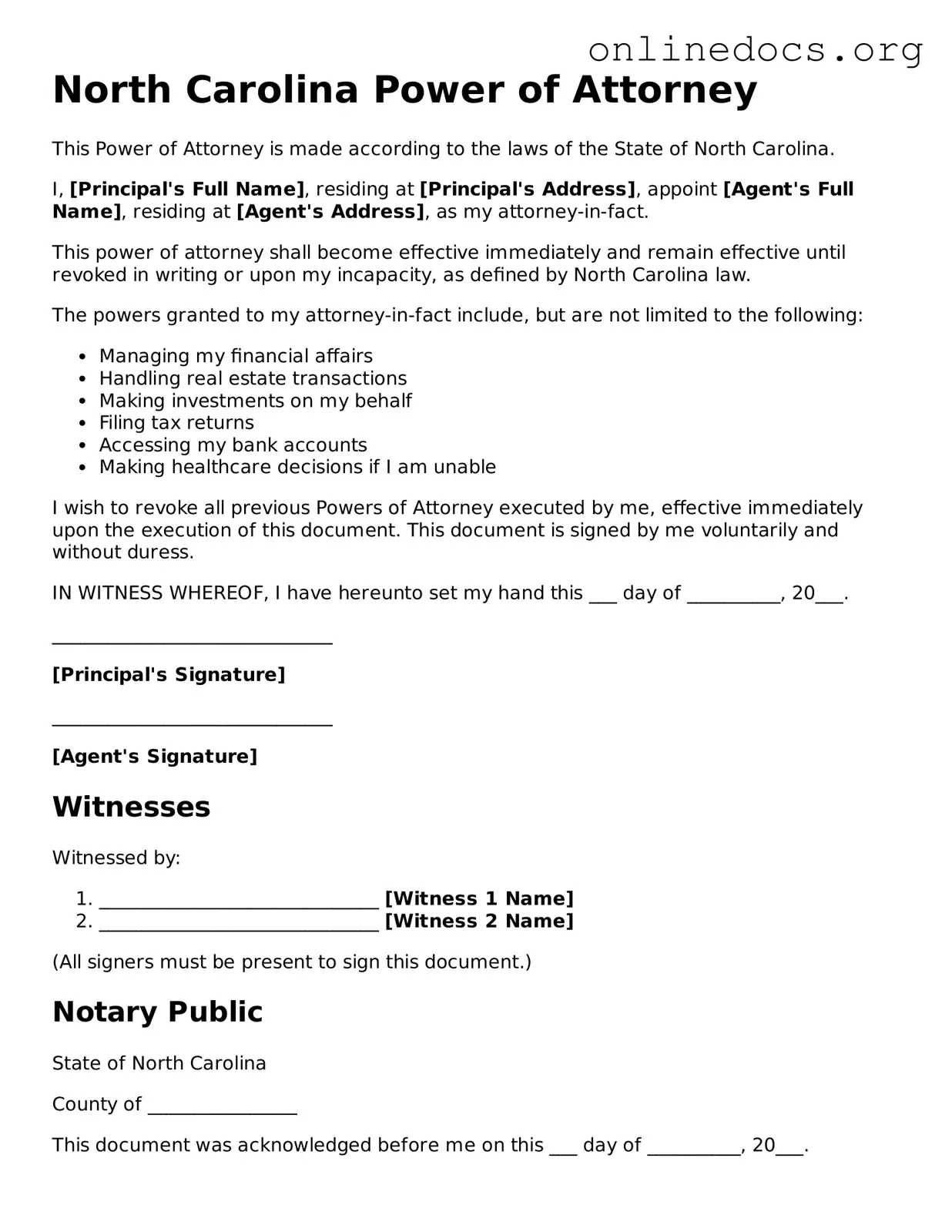Filling out a Power of Attorney (POA) form in North Carolina can be a straightforward process, but many people make mistakes that can lead to complications later on. Understanding these common pitfalls can help ensure that your POA is valid and effective when you need it most.
One frequent mistake is not specifying the powers granted. A general POA allows the agent to act on behalf of the principal, but failing to outline specific powers can create confusion. It’s essential to clearly define what actions the agent can take, whether it involves financial decisions, health care choices, or other legal matters.
Another common error is failing to date the document. A POA must be dated to establish when it takes effect. Without a date, there can be disputes regarding the validity of the document. Always ensure that the date is clearly written on the form.
Many people overlook the importance of having witnesses or notarization. In North Carolina, a POA must be signed in the presence of a notary public or two witnesses who are not related to the principal. Neglecting this step can render the document invalid, so it’s crucial to follow the state's requirements.
Another mistake is not reviewing the form thoroughly before signing. Errors such as misspelled names, incorrect addresses, or wrong dates can lead to complications. Take the time to double-check all information to ensure accuracy.
People often forget to communicate with the agent before designating them. It’s important to discuss the responsibilities and expectations with the person you choose to act on your behalf. Miscommunication can lead to misunderstandings and potential conflicts later.
In some cases, individuals make the mistake of not considering alternate agents. Life is unpredictable, and the primary agent may not always be available to fulfill their duties. Designating an alternate agent can provide peace of mind and ensure that your wishes are honored.
Another pitfall is failing to revoke previous POAs. If you create a new Power of Attorney, it’s crucial to formally revoke any prior versions. This prevents confusion and ensures that your most recent wishes are followed.
People may also neglect to consider the timing of the POA. Some individuals fill out the form during a crisis, which can lead to rushed decisions. It’s best to prepare this document well in advance, allowing for careful consideration and planning.
Lastly, not consulting with a legal professional can be a significant oversight. While many resources are available online, each situation is unique. Consulting with an attorney can help clarify any uncertainties and ensure that the document meets all legal requirements.
By being aware of these common mistakes, individuals can better prepare their Power of Attorney forms. Taking the time to understand the process can lead to a smoother experience and greater peace of mind.
